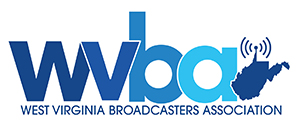Plans vote at June meeting

FCC chairman Ajit Pai is proposing to provide carriers legal certainty that they are allowed to block robocalls, an effort he has teed up for a vote at the FCC's June 6 public meeting.
He has circulated a declaratory ruling to the other commissioners for their vote.
Under the proposal, the FCC would allow phone companies to block calls to their customers by default and could allow those customers to block calls not on their contact lists. The would also be a draft Further Notice of Proposed Rulemaking (FNPRM) would propose a "safe harbor" for "providers that implement network-wide blocking of calls that fail caller authentication under the SHAKEN/STIR framework once it is implemented."
The chairman outlined the proposal to reporters in advance of his planned testimony before the House Communications Subcommittee FCC oversight hearing Wednesday (May 15). Last month, the subcommittee held a legislative hearing on a half dozen bills to battle the "scourge" of unwanted robocalls.
Pai said carriers would have to let consumers who don't want them to block their calls to opt out. He said the proposal should make a "significant dent" in unwanted robocalls.
The chairman did not quantify how significant that dent would be, but said the fact that call blocking would be allowed explicitly would encourage broader development and adoption. He said he wanted to set a clear legal foundation for default blocking.
The chairman encouraged carriers to offer the service for free, but anticipated in any event the cost to carriers would be less than the current regime of downline call blocking. He said he did not anticipate a cost would be passed on to the consumer.
The FCC is under pressure from Congress to help consumers weed out unwanted robocalls--for one thing, legislators keep pointing out that they get such calls during the hearings they have been holding about how to stop them--but it has also been a priority for the chairman.
In prepared testimony for Wednesday's hearing, he pointed out just how much of a priority: "During my tenure as FCC chairman, I’ve had the opportunity to set the agenda for 27 monthly meetings," he said. "At almost half of those meetings, we’ve voted on measures to fight unlawful robocalls and caller ID spoofing.
Just in the past couple of weeks, the FCC has scheduled a robocall summit for July, threatened regulation if carriers had not implemented the SHAKEN/STIR caller ID framework for combating such calls and issued a BOLO (be on the listen out, as it were) for "one-ring" robocalls that rack up charges from recipients that call back.
Pai said the FNPRM safe harbor should help encourage carriers to quickly adopt the SHAKEN/STIR regime. The safe harbor means that to the extent that a carrier uses SHAKEN/STIR, a call that is blocked by default would not trigger legal liability.
The chairman said that if carriers don't implement the SHAKEN/STIR framework by year's end, he is ready to regulate compliance.
Powered by Preisvergleich


